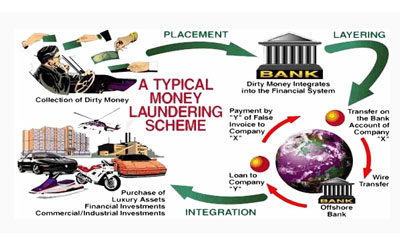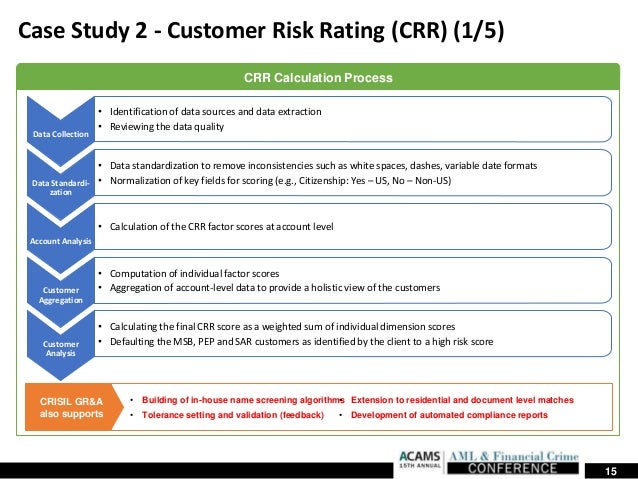Your Anti money laundering regulations meaning images are available. Anti money laundering regulations meaning are a topic that is being searched for and liked by netizens today. You can Get the Anti money laundering regulations meaning files here. Get all royalty-free vectors.
If you’re searching for anti money laundering regulations meaning pictures information related to the anti money laundering regulations meaning interest, you have come to the ideal blog. Our site always gives you hints for downloading the maximum quality video and picture content, please kindly surf and locate more informative video articles and images that match your interests.
Anti Money Laundering Regulations Meaning. AMLCFT Regulations means the Anti-Money Laundering and Terrorist Financing Regulations. Access the AMLCTF Act You can find the AMLCTF Act at the Federal Register of Legislation website. This course on anti-money laundering will outline the meaning of money laundering methods used to launder income and how to identify suspicious activities. Anti-Money Laundering Laws means the applicable laws or regulations in any jurisdiction in which any Loan Party or any of its Subsidiaries or Affiliates is located or is doing business that relates to money laundering any predicate crime to money laundering or any financial record keeping and reporting requirements related thereto.
 Anti Money Laundering Regulations Compliance Process Policy Course From zoetalentsolutions.com
Anti Money Laundering Regulations Compliance Process Policy Course From zoetalentsolutions.com
1 In these Regulations Anti-Money Laundering Compliance Officer means the person designated in accordance with regulation 31. Anti-money laundering AML refers to all policies and pieces of legislation that force financial institutions to monitor their clients to prevent money laundering. Anguilla foundation means a foundation established or continued in Anguilla under the Anguilla Foundations Act. Monitoring officer refers to an AML inspection officer from either the Bank or the. 19 of 2003 applicant for business means a person seeking to form a business relationship or. They must be prevented from financing money laundering and or terrorism.
Anti Money Laundering AML also known as anti-money laundering is the execution of transactions to eventually convert illegally obtained money into legal money.
They must be prevented from financing money laundering and or terrorism. Anguilla foundation means a foundation established or continued in Anguilla under the Anguilla Foundations Act. These Regulations replace the Money Laundering Regulations 2007 SI. 1 In these Regulations unless the context otherwise requires Agency means the Financial Investigation Agency established under section 3 of the Financial Investigation Agency Act 2003. 19 of 2003 applicant for business means a person seeking to form a business relationship or. ATF means anti-terrorist financing.
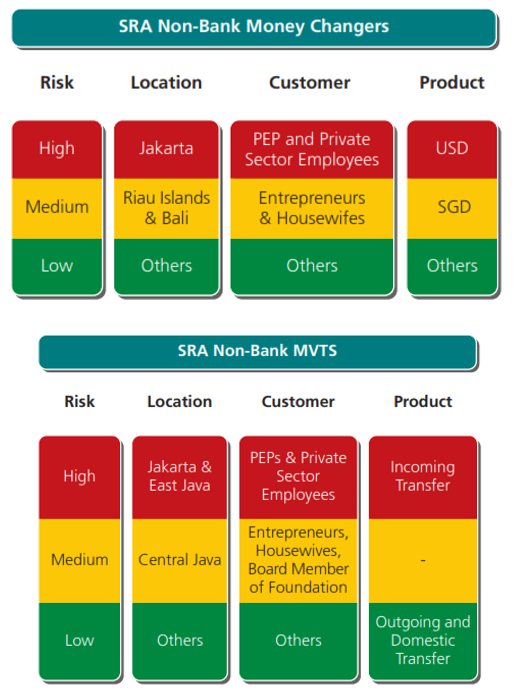 Source: bi.go.id
Source: bi.go.id
PART IP RELIMINARY 1. These Regulations may be cited as the Banking Anti-Money Laundering Regulations 2003 and shall come into operation on 1st March 2003. AML laws require that financial instutions report any financial crime they detect to relevant regulators. Act means the Anti-Money Laundering and Countering Financing of Terrorism Act 2009 nominee director means an individual who is a director of a company within the meaning of section 126 of the Companies Act 1993 and who is required to carry out or accustomed to carrying out the role of director in accordance with the directions or instructions of another person who is not a director of the. In these Regulations AML means anti-money laundering.
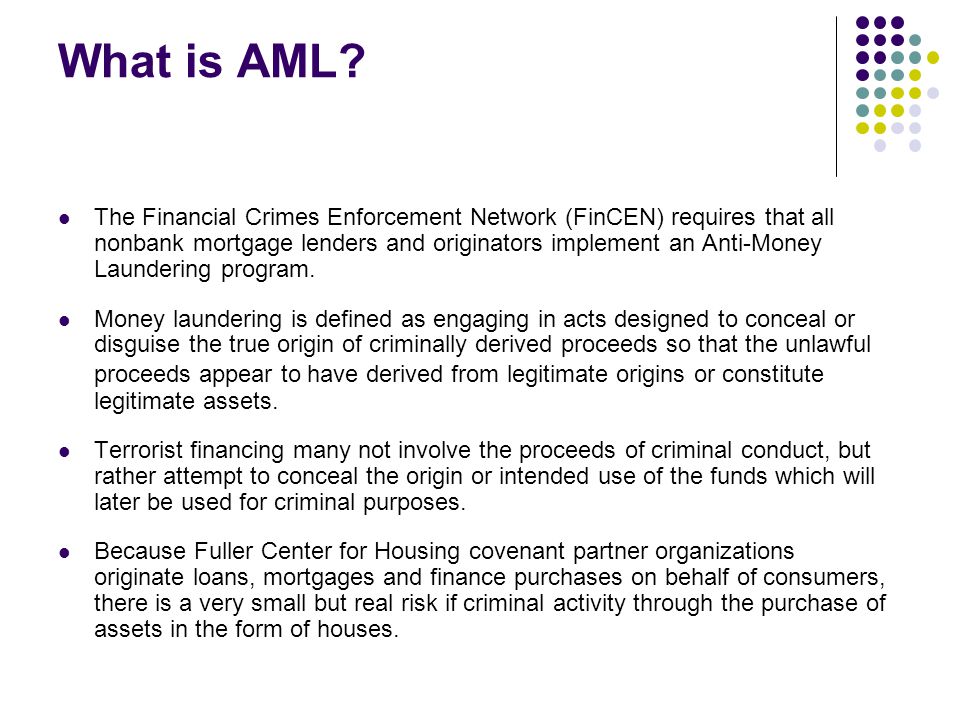 Source: slideplayer.com
Source: slideplayer.com
AML legislation is becoming increasingly strict for financial service providers. Appeal means an appeal for which leave is granted by the Grand Court under. Applicant for business means a person who seeks to form a business relationship or carry out a one-off transaction with a relevant person. This course on anti-money laundering will outline the meaning of money laundering methods used to launder income and how to identify suspicious activities. Money laundering means an offence as provided for in the Proceeds of Crime and Anti Money Laundering Act 2009.
Source: plianced.com
Monitoring officer refers to an AML inspection officer from either the Bank or the. This course on anti-money laundering will outline the meaning of money laundering methods used to launder income and how to identify suspicious activities. Reporting Officer means the person appointed as Anti-money Laundering Reporting Officer. 1 of the Anti-money Laundering Regulations or engages in a business that is designated as a non-financial business by the Commission in the Non-financial Business Designation Notice. Anti-Money Laundering Act 2013 and on the advice of the Financial Intelligence Authority Board these Regulations are made this 24th day of December 2015.
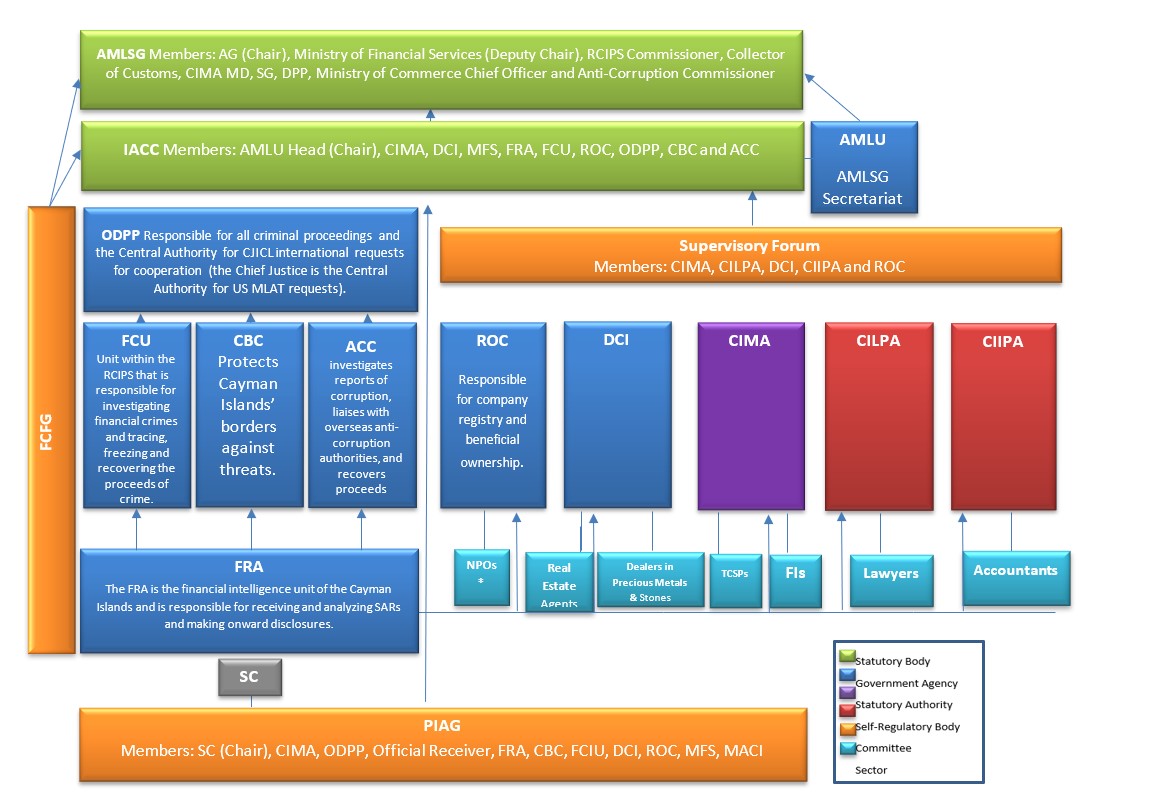 Source: cima.ky
Source: cima.ky
AMLCFT Regulations means the Anti-Money Laundering and Terrorist Financing Regulations. Act means the Anti-Money Laundering and Countering Financing of Terrorism Act 2009 nominee director means an individual who is a director of a company within the meaning of section 126 of the Companies Act 1993 and who is required to carry out or accustomed to carrying out the role of director in accordance with the directions or instructions of another person who is not a director of the. In these Regulations unless the context otherwise requires anti-money laundering measures and practices means. Interpretation In these Regulations unless the context otherwise requires. This course on anti-money laundering will outline the meaning of money laundering methods used to launder income and how to identify suspicious activities.
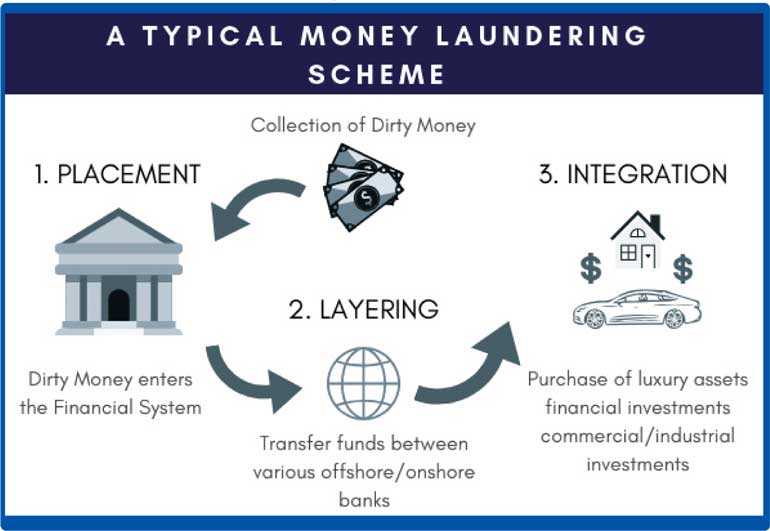 Source: ft.lk
Source: ft.lk
In these Regulations AML means anti-money laundering. AMLCTF Act current version. 20073298 with updated provisions that implement in part the Fourth Money Laundering Directive 2015849EU fourth money laundering directive of the European Parliament and of the Council of 20th May 2015 on the prevention of the. In these Regulations AML means anti-money laundering. Title These Regulations may be cited as the Anti-Money Laundering Regulations 2015.
 Source: zoetalentsolutions.com
Source: zoetalentsolutions.com
As you walk down the street you suddenly notice a new laundromat on your block during your regular morning routine. Money laundering means an offence as provided for in the Proceeds of Crime and Anti Money Laundering Act 2009. AMLATF regulated financial institution has the meaning given in section 42A1 of the Proceeds of Crime Act 1997. Monitoring officer refers to an AML inspection officer from either the Bank or the. These Regulations replace the Money Laundering Regulations 2007 SI.
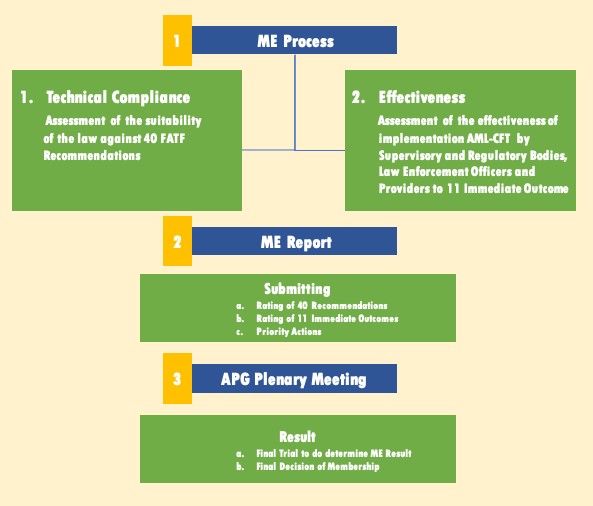 Source: bi.go.id
Source: bi.go.id
These regulations may be cited as the Financial Intelligence and Anti-Money Laundering Regulations 2003. 20072157 and the Transfer of Funds Information on the Payer Regulations 2007 SI. These Regulations may be cited as the Anti-Money Laundering Regulations 2020 Revision. 2 Th e sRgu l ati o npy b k 3. These regulations may be cited as the Financial Intelligence and Anti-Money Laundering Regulations 2003.
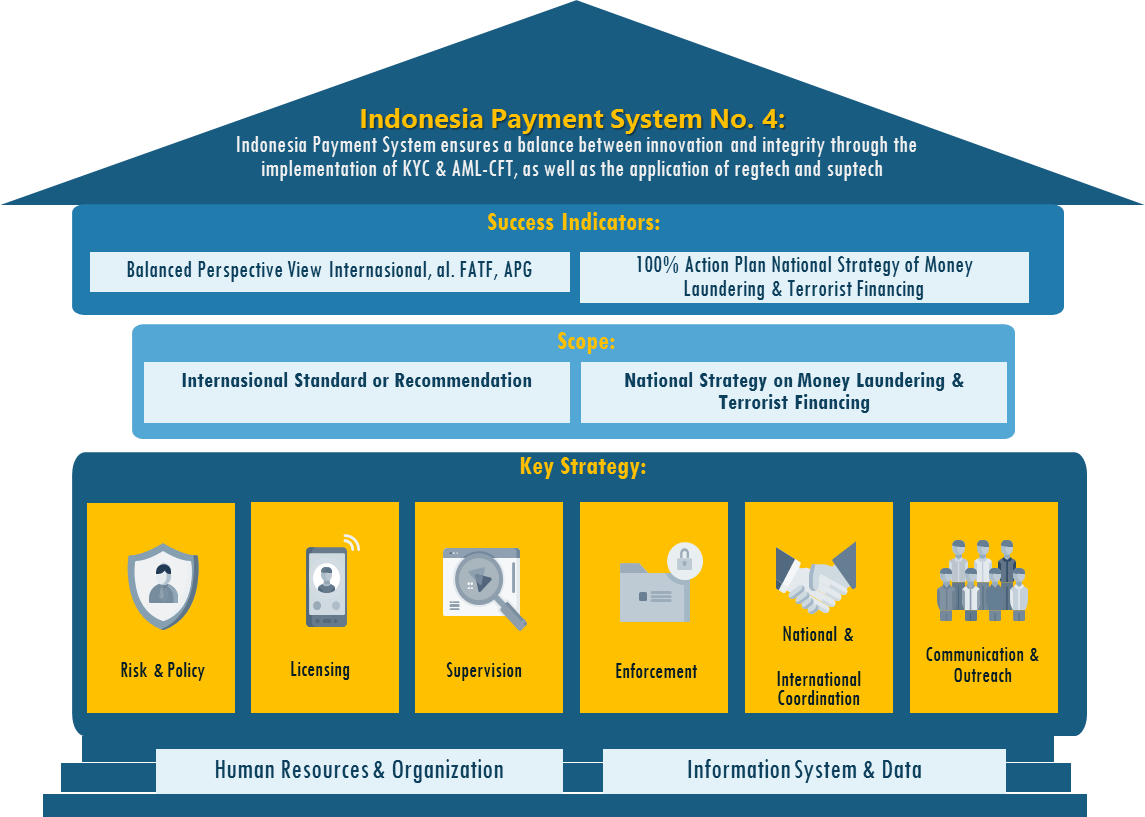 Source: bi.go.id
Source: bi.go.id
1 In these Regulations Anti-Money Laundering Compliance Officer means the person designated in accordance with regulation 31. AMLATF regulated financial institution has the meaning given in section 42A1 of the Proceeds of Crime Act 1997. These regulations may be cited as the Financial Intelligence and Anti-Money Laundering Regulations 2003. AML laws require that financial instutions report any financial crime they detect to relevant regulators. Anti-money laundering AML is a term mainly used in the financial and legal industries to describe the legal controls that require financial institutions and other regulated entities to prevent detect and report money laundering activities.
Source: bi.go.id
Access the AMLCTF Act You can find the AMLCTF Act at the Federal Register of Legislation website. PART IP RELIMINARY 1. These regulations may be cited as the Financial Intelligence and Anti-Money Laundering Regulations 2003. In these regulations - Act means the Financial Intelligence and Anti-Money Laundering Act 2002. Interpretation In these Regulations unless the context otherwise requires.
 Source: researchgate.net
Source: researchgate.net
PART IP RELIMINARY 1. Anti Money Laundering AML also known as anti-money laundering is the execution of transactions to eventually convert illegally obtained money into legal money. Act means the Anti-Money Laundering and Countering Financing of Terrorism Act 2009 nominee director means an individual who is a director of a company within the meaning of section 126 of the Companies Act 1993 and who is required to carry out or accustomed to carrying out the role of director in accordance with the directions or instructions of another person who is not a director of the. PART IP RELIMINARY 1. Appeal means an appeal for which leave is granted by the Grand Court under.
 Source: mintos.com
Source: mintos.com
Applicant for business means a person who seeks to form a business relationship or carry out a one-off transaction with a relevant person. PART IP RELIMINARY 1. These regulations may be cited as the Financial Intelligence and Anti-Money Laundering Regulations 2003. In these regulations - Act means the Financial Intelligence and Anti-Money Laundering Act 2002. They must be prevented from financing money laundering and or terrorism.
 Source: tookitaki.ai
Source: tookitaki.ai
20073298 with updated provisions that implement in part the Fourth Money Laundering Directive 2015849EU fourth money laundering directive of the European Parliament and of the Council of 20th May 2015 on the prevention of the. AML legislation is becoming increasingly strict for financial service providers. Anti-money laundering AML refers to all policies and pieces of legislation that force financial institutions to monitor their clients to prevent money laundering. Anti Money Laundering AML also known as anti-money laundering is the execution of transactions to eventually convert illegally obtained money into legal money. Appointed stock exchange means a stock exchange appointed by the Minister of.
 Source: corporatefinanceinstitute.com
Source: corporatefinanceinstitute.com
These regulations may be cited as the Financial Intelligence and Anti-Money Laundering Regulations 2003. Anti-Money Laundering Act 2013 and on the advice of the Financial Intelligence Authority Board these Regulations are made this 24th day of December 2015. AMLCFT Regulations means the Anti-Money Laundering and Terrorist Financing Regulations. Anguilla foundation means a foundation established or continued in Anguilla under the Anguilla Foundations Act. AMLATF regulated financial institution has the meaning given in section 42A1 of the Proceeds of Crime Act 1997.
This site is an open community for users to do submittion their favorite wallpapers on the internet, all images or pictures in this website are for personal wallpaper use only, it is stricly prohibited to use this wallpaper for commercial purposes, if you are the author and find this image is shared without your permission, please kindly raise a DMCA report to Us.
If you find this site value, please support us by sharing this posts to your own social media accounts like Facebook, Instagram and so on or you can also save this blog page with the title anti money laundering regulations meaning by using Ctrl + D for devices a laptop with a Windows operating system or Command + D for laptops with an Apple operating system. If you use a smartphone, you can also use the drawer menu of the browser you are using. Whether it’s a Windows, Mac, iOS or Android operating system, you will still be able to bookmark this website.



